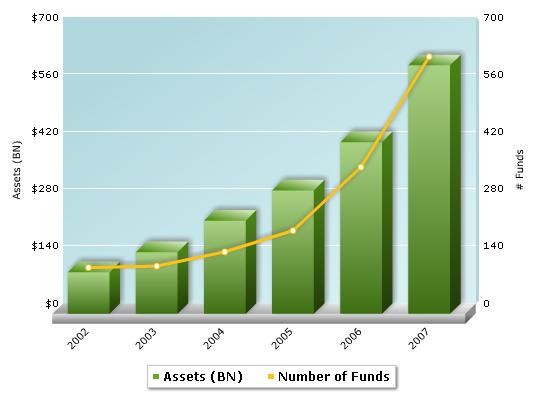Exchange Traded Funds
Post on: 11 Май, 2015 No Comment

What is an Exchange Traded Fund?
Exchange traded funds (ETFs) are open-ended investment funds listed and traded on a stock exchange. Your money is pooled with money from other investors and invested according to the ETFs stated investment objective.
An ETFs objective is to produce a return that tracks or replicates a specific index such as a stock or commodity index. ETFs are passively managed by ETF managers and do not try to outperform the underlying index. Hence, ETFs have fees and charges that are usually lower than those of actively managed investment funds.
ETFs may have complex structures. They may be structured as cash-based ETFs or as synthetic ETFs, which involve the use of derivatives.
Some investment products have been categorised as Specified Investment Products (SIPs). Do check with your financial institution whether the product you are considering is an SIP. For information on the requirements in place when transacting SIPs, please refer to the consumer guide.
What is an index?
A stock market index is a representative sample of the stock market and is expressed as a single value to measure the relative value of the stock market.
What is the return?
You invest in an ETF by buying units in the ETF. There is capital gain when the price of the units rises above the price paid for them. Some ETFs also pay dividends.
Why do people invest in ETFs?
There are many ETFs to choose from. If you buy an ETF which tracks a share index, you gain exposure to the performance of the index. For example, investing in an ETF that tracks the Straits Times Index (STI) provides investors with exposure to the Singapore market.
You can gain this exposure without having to spend more money buying the component stocks of the index. In addition, fees and charges for ETFs tend to be lower than for actively managed investment funds as ETFs have lower management fees. There is also usually no sales charge, although any transactions in ETFs on the SGX would still be subject to brokerage commissions or transfer taxes associated with the trading and settlement through the SGX.
As ETFs are traded on a stock exchange, you can buy and sell units of ETFs throughout the trading day.
Are ETFs suitable for everyone?
Investing in ETFs may not be for everyone. They may not be suitable for you if you:
- Want potentially higher returns BUT are not prepared for variable returns which include the risk of losing all or a substantial part of your original investment amount;
- Do not understand how returns are determined or if you are unclear about the factors and scenarios that can affect returns;
- Do not understand the risks associated with the ETF. Investors should be aware of the risks associated with the use of derivatives by ETFs, including the risk that the provider or counterparty of the derivative defaults.
- Are not prepared to leave your money invested for long periods of time. A longer time horizon is generally preferred to ride out short term price fluctuations. But depending on the investors investment objective, some ETFs may be suitable for short term trading.
- Are not familiar with the ETF manager and the ETFs track record.
What is the maximum amount you can lose?
ETFs are not principal-guaranteed. You may lose all or a substantial amount of the money you invested in certain situations. The risks of investing in ETFs are described in the prospectus and product highlights sheet.














